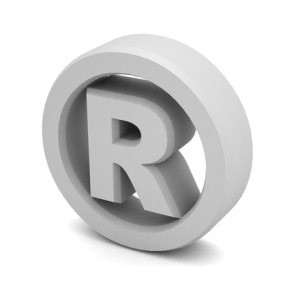October 28, 2016
 Trademark lawyers across the country should take note of the U.S. Patent and Trademark Office’s (“USPTO”) first major set of Trademark Trial and Appeal Board (“TTAB”) rule changes since 2007. The amended rules take effect on January 14, 2017, for both new and pending TTAB cases.
Trademark lawyers across the country should take note of the U.S. Patent and Trademark Office’s (“USPTO”) first major set of Trademark Trial and Appeal Board (“TTAB”) rule changes since 2007. The amended rules take effect on January 14, 2017, for both new and pending TTAB cases.
What are the USPTO rulemaking’s key takeaways?
Electronic Environment
- Serving Complaints. Plaintiffs will no longer be required to serve copies of notices of opposition or petitions for cancellation on defendants. That responsibility will shift back to the TTAB, which will serve complaints by sending defendants a hyperlink to access the papers via TTABVUE (the TTAB’s electronic case file system).
- Service Copies. Unless otherwise stipulated, the USPTO will require all TTAB filings and other papers to be served between parties by email, rather than physical mail. The additional five days previously added to a party’s response time to account for mail delays will also be removed.
- Electronic Filing. All TTAB filings (with the limited exception of examining attorney filings in ex parte appeals) must be made through ESTTA, the TTAB’s electronic filing system.
- Electronically stored information (ESI) and tangible things will now be explicitly included as subject matter for discovery.
- Video Conferences. Parties, examining attorneys and TTAB members will be able to attend hearings remotely through video conference.
Pleadings, Discovery and Pretrial Procedure
- Failure to File Answer. When no answer has been filed, all other deadlines will be tolled. Continued TTAB litigation after a late-filed answer will be treated as a waiver of default.
- Joint Opposers. After the close of the time period for filing a notice of opposition, the notice may not be amended to add a joint opposer.
- Limiting Discovery. Parties will be able to stipulate to limiting discovery by shortening the discovery period, limiting requests for discovery, using reciprocal disclosures instead of discovery or eliminating discovery altogether.
- Initial Disclosures. Motions to compel initial disclosures must be filed within 30 days after the deadline for initial disclosures.
- Confidential Information. The TTAB will be able to treat certain materials as non-confidential, even if the materials have been designated “confidential” by a party.
- Limitation on Requests. The number of requests for production of documents and requests for admissions will be limited to 75 each (the same as the current limitation on interrogatories), with the option to move for additional requests for good cause.
- Authentication of Documents. Each party that has received produced documents will be able to serve one comprehensive request for admission requiring the producing party to authenticate documents and/or specify which documents cannot be authenticated.
- Interlocutory Attorneys. Interlocutory Attorneys will be able to participate in discovery conferences sua sponte when they consider it useful.
Ex Parte Appeals
- Evidence on Appeal. Ex parte appellants should not file evidence with the TTAB after filing a notice of appeal, but instead should add evidence to the record when attached to a timely request for reconsideration or remand.
- Page Limit. Reply briefs in ex parte appeals will be limited to 10 pages.
- Evidence Citations. Citation to evidence in all ex parte appellate briefs should be to documents in the electronic application record by docket entry date and page number.
How Knowledgeable Is Your Trademark Lawyer?
The above-referenced rulemaking may have serious implications for parties appearing before the TTAB. To ensure that you and your brand are thoroughly protected during TTAB proceedings, speak with an experienced trademark lawyer who is well-versed in TTAB practices and procedures.
If you are interested in learning more about this topic, or if you are involved in a trademark proceeding before the TTAB, please e-mail us at info@kleinmoynihan.com, or call us at (212) 246-0900.
The material contained herein is provided for informational purposes only and is not legal advice, nor is it a substitute for obtaining legal advice from an attorney. Each situation is unique, and you should not act or rely on any information contained herein without seeking the advice of an experienced attorney.
Attorney Advertising
Related Blog Posts:
Strip Club Shows Off Assets in Trademark Infringement Lawsuit
PornHub Advertising in Crosshairs for Sloppy Trademark Clearance
Klein Moynihan Turco Scores Major Trademark Infringement Win



